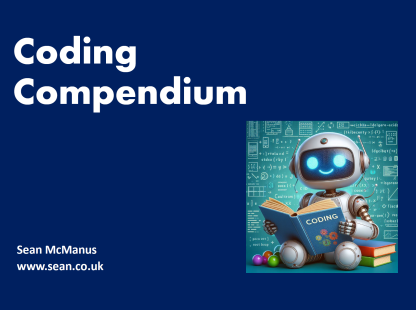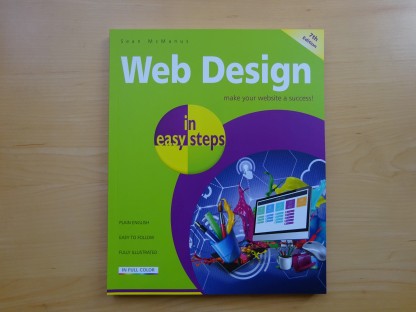
Coding Compendium
A free 100-page ebook collecting my projects and tutorials for Raspberry Pi, micro:bit, Scratch and Python. Simply join my newsletter to download it.
Paul Hallett was the technical editor of Raspberry Pi For Dummies. In this interview, he reveals what the role involved, and the best things about it.
 I was one of the first people to get a Raspberry Pi - I remember spending all day trying to order one whilst the websites kept crashing due to the huge amount of interest in the little device. I am completing a degree in Computer Science, so I wanted one to tinker with and run a few little projects on. I ended up coming up with the idea to help teach programming on the device by building and running a website on one. My project became the first ever successfully crowd-funded Raspberry Pi project. Right now I'm building another Raspberry Pi application for my university dissertation, I am teaching in schools around the South West of England and attending Raspberry Pi conferences.
I was one of the first people to get a Raspberry Pi - I remember spending all day trying to order one whilst the websites kept crashing due to the huge amount of interest in the little device. I am completing a degree in Computer Science, so I wanted one to tinker with and run a few little projects on. I ended up coming up with the idea to help teach programming on the device by building and running a website on one. My project became the first ever successfully crowd-funded Raspberry Pi project. Right now I'm building another Raspberry Pi application for my university dissertation, I am teaching in schools around the South West of England and attending Raspberry Pi conferences.
I was contacted by Craig Smith from Wiley who initially wanted me to author a book about programming Python on the Raspberry Pi but I had to turn it down due to time constraints (I am completing a degree after all!). So instead he contacted me asking if I'd like to help be a technical reviewer on Raspberry Pi for Dummies. I immediately said yes!
On the surface - technical reviewing seems like you're just reading through the book checking for errors, but there is much more involved.
I personally write and run all the programming code that is written in a technical book to make sure it works. I also offer code optimizations where possible. Python especially likes code to be 'pythonic', something a few people often forget.
You have to have a keen eye to spot small technical errors (I remember reading through the first draft of Raspberry Pi for Dummies and it suggesting a mini USB for the power supply, when actually a micro USB is needed). Small things like that can go amiss quite easily when you're reviewing hundreds of pages and they can cause problems.
You also have to be confident enough to correct the author on technical issues - after all you are considered the technical 'expert', so if it seems wrong don't be afraid to research it and change it.
For someone my age with my experience, the best thing so far has been saying 'I helped to write that book!' to my peers. I also enjoy the hunt for errors, finding things that aren't quite right or re-writing code so that it looks better for the reader.
Make sure you know the field - a bad technical editor is one who has no idea what they're reviewing. That said, be prepared to spend some time learning whilst technical reviewing - you want to make sure what you're saying is correct!
The entire process was completely new to me, so I learned a lot! I learned that we use Dropbox a lot and things are pretty messy but still well organised. I always imagined we'd use special software - I was completely surprised when I was given a bunch of word documents to edit!
© Sean McManus. All rights reserved.
Visit www.sean.co.uk for free chapters from Sean's coding books (including Mission Python, Scratch Programming in Easy Steps and Coder Academy) and more!

A free 100-page ebook collecting my projects and tutorials for Raspberry Pi, micro:bit, Scratch and Python. Simply join my newsletter to download it.

Web Design in Easy Steps, now in its 7th Edition, shows you how to make effective websites that work on any device.

Power up your Microsoft Excel skills with this powerful pocket-sized book of tips that will save you time and help you learn more from your spreadsheets.

This book, now fully updated for Scratch 3, will take you from the basics of the Scratch language into the depths of its more advanced features. A great way to start programming.

Code a space adventure game in this Python programming book published by No Starch Press.

Discover how to make 3D games, create mazes, build a drum machine, make a game with cartoon animals and more!